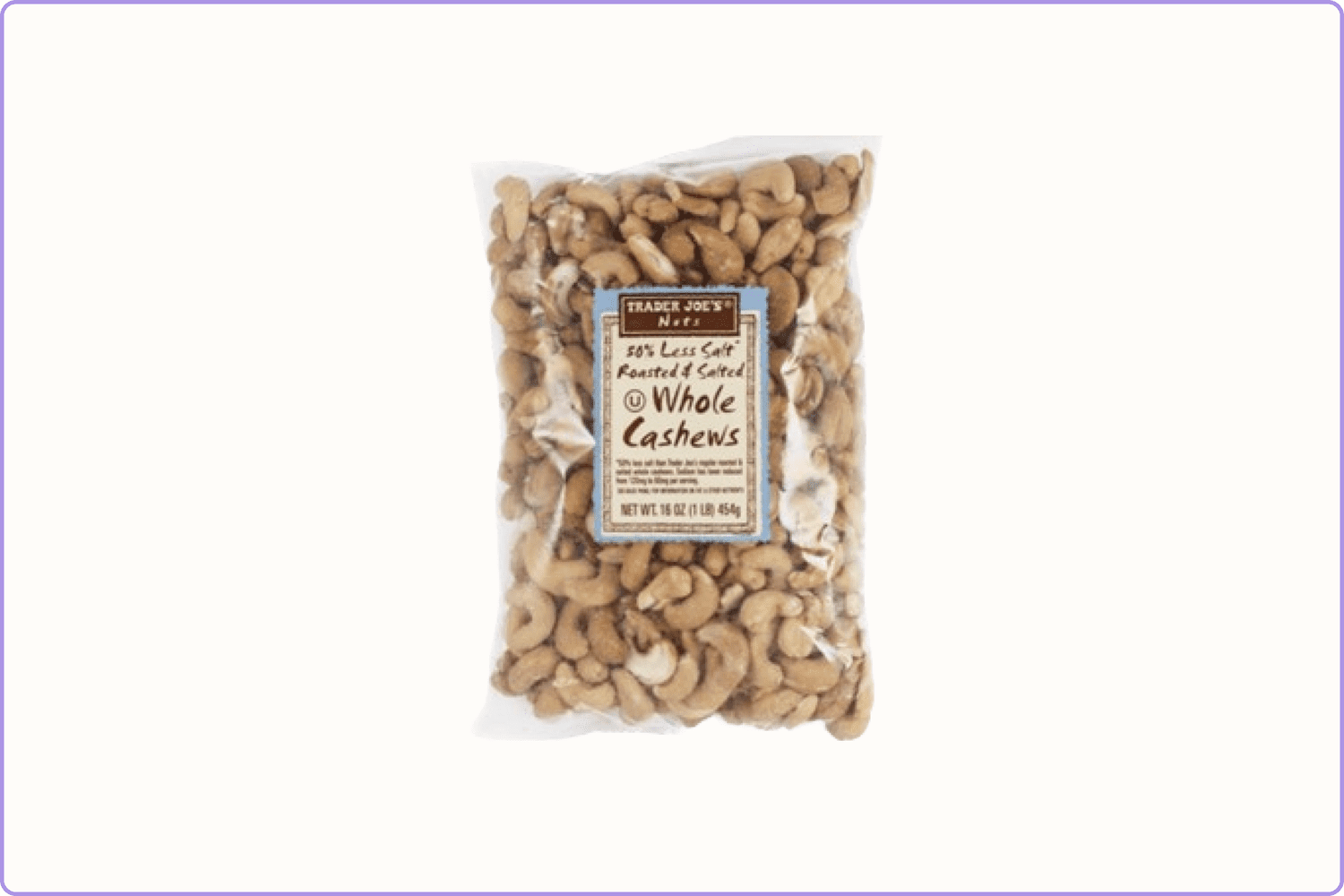Possible Contamination: Trader Joe's Recalls Cashews Due to Salmonella Concerns

Trader Joe's has announced a recall of its low-sodium whole cashews as they may have been contaminated with Salmonella bacteria.
The distributor, Wenders LLC, which supplies the half-salt, roasted and salted whole cashews (SKU Number 37884) for Trader Joe’s took the initiative to inform the public about the recall on Sunday.
The cashews in question were distributed in states such as Alabama, Arkansas, Arizona, California, Colorado, Idaho, Kansas, Louisiana, New Mexico, Nevada, Oklahoma, Oregon, Tennessee, Texas, Utah, and Washington.
Specific identification details are provided with the potentially contaminated product.
By checking the country of origin on the packaging, customers can see if they have the recalled half-salt, Roasted & Salted Whole Cashews, originating from either India or Vietnam.
At present, no cases of illness linked to the cashews from Trader Joe's have been reported. The potential issue was brought to the attention of Wenders LLC when at least one of the recalled lots showed positive for Salmonella presence following FDA testing.
The source of the potential bacteria contamination remains unknown at this time.
Earlier on March 4, Trader Joe's recalled its Steamed Chicken Soup Dumplings over concerns of hard plastic pieces contamination.
Customers who have bought the Trader Joe's half-salt Roasted & Salted Whole Cashews should refrain from consuming them, they are advised to return it to any Trader Joe's store for a refund. Customers with queries can reach out to the distributor via email at [email protected].
Even though no Salmonella infections linked to this cashew recall have been reported thus far, the potential contamination poses a significant health risk.
Salmonella bacteria could cause a diarrheal illness, gastroenteritis, with severity ranging from mild to severe. Common symptoms of salmonellosis, a Salmonella infection, includes fever, abdominal pain, diarrhea, and less commonly headache, nausea, or vomiting.
According to the Centers for Disease Control and Prevention (CDC), Salmonella contributes to most of the foodborne illnesses. Estimated annual calculations show about 1.35 million Salmonella infections resulting in over 26,000 hospitalizations, and approximately 420 deaths. Majority of these infections originate from food.
Common foods associated with Salmonella include chicken, eggs, pork, flour, diced onions, ground beef, fruits, sprouts, nut butters, and other processed foods besides turkey.
A 2016 instance saw an outbreak of 11 salmonellosis cases due to tainted pistachios from Wonderful Pistachios, sold at Trader Joe's and other stores. Following this incident, the FDA released numerous risk-assessment updates on the possible connection between tree nuts and Salmonella, brought about by a series of recalls and outbreaks in the 2010s concerning potential Salmonella contamination in nuts including pine, cashew, walnut, and pistachio.
Salmonella patients generally recover independently, with majority of cases going unreported to healthcare authorities. Despite this, salmonellosis can potentially lead to severe or fatal infections in some cases.
Although it's quite uncommon, the bacteria can occasionally migrate into the bloodstream causing other illnesses such as joint arthritis or heart endocarditis.
These deadly infections primarily affect individuals with weakened immune systems including those under the age of five, adults aged 65 and above, and people with compromised immunity due to health conditions like diabetes or cancer.




